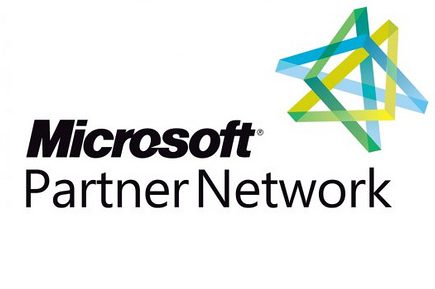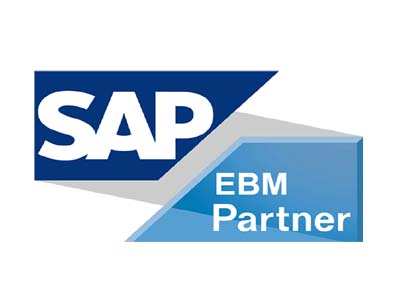In today’s fast-paced business environment, efficient logistics is the lifeline of successful companies. Whether it’s a small e-commerce startup or a global manufacturing enterprise, every organization relies on seamless transportation, storage, and distribution of goods to keep operations running smoothly. This is where a logistics management system (LMS) comes into play.
A logistics management system is a digital platform that streamlines the planning, execution, and monitoring of logistics activities. It helps businesses manage supply chain operations more effectively by automating processes, improving visibility, and reducing costs. From tracking shipments in real time to optimizing warehouse operations, LMS software has become a critical tool for companies that want to stay competitive in an increasingly demanding marketplace.

What Is a Logistics Management System?
A logistics management system is a software solution designed to manage the flow of goods, services, and information across the supply chain. It integrates key functions such as:
-
Transportation management – coordinating the movement of goods through various modes (road, rail, sea, air).
-
Warehouse management – controlling storage, inventory, and order fulfilment processes.
-
Order processing – ensuring customer orders are managed accurately and delivered on time.
-
Fleet management – monitoring and optimizing vehicle usage, fuel consumption, and driver performance.
-
Tracking and reporting – providing real-time visibility into shipments and supply chain activities.
In essence, an LMS provides a centralized platform that connects suppliers, manufacturers, distributors, and retailers, ensuring the supply chain functions as a unified system.
The Importance of Logistics in Modern Business
Before diving deeper into the role of an LMS, it’s essential to understand why logistics is so vital. In an era defined by globalization, online shopping, and customer expectations for fast delivery, logistics has become a competitive differentiator. Companies like Amazon and Alibaba thrive largely because of their robust logistics capabilities.
Efficient logistics leads to:
-
Customer satisfaction – Faster and accurate deliveries boost customer trust.
-
Cost savings – Optimized transportation and inventory management reduce operational expenses.
-
Risk management – Better visibility minimizes disruptions caused by delays, damages, or shortages.
-
Sustainability – Smart logistics reduces fuel consumption, carbon emissions, and resource waste.
Without effective logistics management, even the best products and marketing strategies can fall flat.
Core Features of a Logistics Management System
Modern LMS platforms come with a wide range of features designed to address the challenges of supply chain management. Here are the most important ones:
1. Real-Time Tracking and Visibility
One of the most valuable features of an LMS is the ability to track goods in real time. Both businesses and customers can monitor where shipments are, reducing uncertainty and improving transparency.
2. Route Optimization
By analyzing traffic data, fuel costs, and delivery schedules, an LMS can suggest the most efficient routes. This not only reduces delivery times but also cuts transportation costs.
3. Automated Order Processing
Automation ensures that orders move seamlessly from placement to fulfilment without manual errors. This leads to faster processing, fewer mistakes, and happier customers.
4. Inventory Management
With real-time updates, businesses can monitor stock levels, avoid overstocking or stockouts, and ensure timely replenishment.
5. Data Analytics and Reporting
An LMS collects valuable data on logistics performance. Businesses can analyze this data to identify bottlenecks, forecast demand, and improve decision-making.
6. Integration with Other Systems
An LMS can integrate with enterprise resource planning (ERP), customer relationship management (CRM), and e-commerce platforms to create a smooth flow of information across departments.

Benefits of Implementing a Logistics Management System
Adopting an LMS can transform how a business operates. Here are some of the key benefits:
1. Improved Efficiency
By automating routine tasks and providing visibility across the supply chain, an LMS reduces manual work and increases productivity.
2. Cost Reduction
Optimized routes, better inventory control, and reduced delays translate into lower logistics costs.
3. Enhanced Customer Experience
Accurate tracking and timely deliveries build customer trust and loyalty.
4. Better Risk Management
An LMS helps businesses anticipate disruptions and develop contingency plans.
5. Scalability
As businesses grow, an LMS can scale to handle higher order volumes and more complex supply chains.
Challenges in Logistics Management
Despite its advantages, logistics management isn’t without challenges. Businesses often face issues such as:
-
Rising fuel costs are impacting transportation budgets.
-
Supply chain disruptions due to natural disasters, geopolitical tensions, or pandemics.
-
Regulatory compliance with international trade laws and safety standards.
-
Technology adoption barriers, especially for small and medium-sized enterprises.
A well-designed logistics management system addresses many of these challenges by providing data-driven solutions and flexibility.
The Role of Technology in Modern Logistics
Technology has revolutionized the logistics industry. Logistics management systems now leverage advanced technologies to improve efficiency and accuracy. Some of the key innovations include:
-
Artificial Intelligence (AI): Used for demand forecasting, predictive maintenance, and intelligent decision-making.
-
Internet of Things (IoT): Sensors track shipments, monitor vehicle conditions, and provide real-time updates.

-
Blockchain: Ensures secure, transparent, and tamper-proof records of transactions.
-
Cloud Computing: Enables businesses to access LMS platforms from anywhere, ensuring scalability and flexibility.
-
Big Data Analytics: Provides insights into patterns, customer behavior, and logistics performance.
These technologies collectively create a smarter, more agile logistics ecosystem.
Logistics Management System in Different Industries
Different industries benefit from logistics management systems in unique ways:
-
E-commerce: Ensures fast deliveries, manages returns, and keeps customers informed.
-
Manufacturing: Synchronizes production schedules with supply chain activities.
-
Retail: Maintains optimal stock levels to meet consumer demand.
-
Healthcare: Ensures timely delivery of critical medical supplies and pharmaceuticals.
-
Automotive: Manages global supply chains for parts and finished vehicles.
By tailoring features to industry-specific needs, an LMS becomes a vital tool for improving operational efficiency.
How to Choose the Right Logistics Management System
Selecting the right LMS depends on the unique needs of a business. Here are some factors to consider:
-
Ease of Use: A user-friendly interface ensures smooth adoption across teams.
-
Customization: The system should be adaptable to specific business processes.
-
Scalability: Ensure the system can grow with your business.
-
Integration: Compatibility with existing tools like ERP, CRM, and accounting software.
-
Support and Training: Strong vendor support and employee training are essential for long-term success.
Future of Logistics Management Systems
The future of logistics management is shaped by sustainability, automation, and digitalization. Companies are focusing on green logistics to reduce carbon footprints. Automation through drones and autonomous vehicles is gaining traction, while AI-powered predictive analytics will further enhance efficiency.
In the coming years, logistics management systems will become even more intelligent, offering predictive insights, end-to-end visibility, and seamless integration across global networks.
Conclusion
A logistics management system is no longer a luxury—it’s a necessity for businesses that want to thrive in today’s competitive landscape. By integrating technology, automation, and real-time data, an LMS helps organizations reduce costs, improve efficiency, and deliver exceptional customer experiences.
As supply chains grow more complex, companies that invest in robust logistics management systems will be better equipped to handle challenges, seize opportunities, and achieve sustainable growth.
In short, an LMS is not just software; it’s the backbone of modern supply chains, enabling businesses to operate smarter, faster, and more efficiently in a dynamic global economy.










 Samapak Food Industry is one of PMS’s satisfied e-commerce websites. Sama Pak Food is the webshop where you can find all your care products. The webshop was founded after customers from both at home and abroad asked us if we could send the products to them.
Samapak Food Industry is one of PMS’s satisfied e-commerce websites. Sama Pak Food is the webshop where you can find all your care products. The webshop was founded after customers from both at home and abroad asked us if we could send the products to them. Alkaram Foam is one of PMS’s dynamic websites. Alkaram Foam is a name of quality, luxury, and comfort. We offer foam mattress, spring mattress and medicated mattress at market-beating prices. Also, we make EPE foam rolls (Jumbolon rolls) and EPE shells (Jumbolon shells) for businesses.
Alkaram Foam is one of PMS’s dynamic websites. Alkaram Foam is a name of quality, luxury, and comfort. We offer foam mattress, spring mattress and medicated mattress at market-beating prices. Also, we make EPE foam rolls (Jumbolon rolls) and EPE shells (Jumbolon shells) for businesses. Al Noor Rice Corporation is one of PMS’s satisfied e-commerce websites. AL NOOR provides the best quality of Rice to its customers all over Pakistan and the Rest of the World. We are renowned for producing different varieties of Basmati like Super Basmati Rice, 1121 Basmati Rice, 1509 Basmati Rice, and various categories of non-Basmati rice like C9, 386, irri-6 and irri-9.
Al Noor Rice Corporation is one of PMS’s satisfied e-commerce websites. AL NOOR provides the best quality of Rice to its customers all over Pakistan and the Rest of the World. We are renowned for producing different varieties of Basmati like Super Basmati Rice, 1121 Basmati Rice, 1509 Basmati Rice, and various categories of non-Basmati rice like C9, 386, irri-6 and irri-9.



 Skye VIP Cars is one of PMS’s dynamic websites. It offers all kinds of car services in Dubai and all over the UAE, pleasing our clients to the highest level.
Skye VIP Cars is one of PMS’s dynamic websites. It offers all kinds of car services in Dubai and all over the UAE, pleasing our clients to the highest level. Delta Wye Power Incorporation is one of PMS’s satisfied e-commerce websites. Delta Wye Power Inc., another company he is involved with, focuses on medium-voltage transformers.
Delta Wye Power Incorporation is one of PMS’s satisfied e-commerce websites. Delta Wye Power Inc., another company he is involved with, focuses on medium-voltage transformers. County Public High School is one of the best dynamic websites of PMS. CPS Gujrat has been set up to provide a sound education to the students with special emphasis on character building and the development of a wholesome personality. We aim to build the student’s power of judgment and appraisal of evidence by reasoning and inference.
County Public High School is one of the best dynamic websites of PMS. CPS Gujrat has been set up to provide a sound education to the students with special emphasis on character building and the development of a wholesome personality. We aim to build the student’s power of judgment and appraisal of evidence by reasoning and inference. Cancer Patients Welfare Society GINUM is one of the best dynamic websites of PMS. The ultimate goal of CPWS GINUM is to help the ailing humanity of Cancer disease. CPWS helps cancer patients by providing free medicines and diagnostic facilities. In addition, CPWS helps GINUM administration in all aspects for the benefit of patients.
Cancer Patients Welfare Society GINUM is one of the best dynamic websites of PMS. The ultimate goal of CPWS GINUM is to help the ailing humanity of Cancer disease. CPWS helps cancer patients by providing free medicines and diagnostic facilities. In addition, CPWS helps GINUM administration in all aspects for the benefit of patients. Al-Huda Rice Mills is one of the best dynamic websites of PMS.
Al-Huda Rice Mills is one of the best dynamic websites of PMS. 

 Ayk Trading Ltd. is one of the best landing page websites of PMS. Their Success is driven by the workforce & their Commitment to getting Results in the Right Way by Operating Responsibly, Executing with Excellence, and Applying Innovative Technologies and capturing New Opportunities for Development.
Ayk Trading Ltd. is one of the best landing page websites of PMS. Their Success is driven by the workforce & their Commitment to getting Results in the Right Way by Operating Responsibly, Executing with Excellence, and Applying Innovative Technologies and capturing New Opportunities for Development. Qasim Iftikhar Corporation is one of the best dynamic websites of PMS. Qasim Iftikhar Corporation was founded in 2015 with a vision to import and export ferrous and nonferrous metals in particular Aluminium. The aluminum business is inherited from us from our parent company and we continue to trade in other ferrous and nonferrous metals.
Qasim Iftikhar Corporation is one of the best dynamic websites of PMS. Qasim Iftikhar Corporation was founded in 2015 with a vision to import and export ferrous and nonferrous metals in particular Aluminium. The aluminum business is inherited from us from our parent company and we continue to trade in other ferrous and nonferrous metals. Private Hospital Association Gujranwala is one of the best dynamic websites of PMS. The idea of a Private Hospital Association was the brainchild of Dr. Asif Ali Chaudhry, a renowned GP of Gujranwala, and his son Dr. Asad Ali Chaudhry, a prominent Gastro-Entrologist of our city, in view of an ever-increasing trend of medico-legal cases against private hospitals in this city.
Private Hospital Association Gujranwala is one of the best dynamic websites of PMS. The idea of a Private Hospital Association was the brainchild of Dr. Asif Ali Chaudhry, a renowned GP of Gujranwala, and his son Dr. Asad Ali Chaudhry, a prominent Gastro-Entrologist of our city, in view of an ever-increasing trend of medico-legal cases against private hospitals in this city. GMT (Pvt.)Ltd. is one of the best dynamic websites of PMS. GMT Hearing Center is a Pakistani-based organization established in 2005. The purpose of the organization is to work for hearing, speech, physical and visual impairment.
GMT (Pvt.)Ltd. is one of the best dynamic websites of PMS. GMT Hearing Center is a Pakistani-based organization established in 2005. The purpose of the organization is to work for hearing, speech, physical and visual impairment. Sami Goods Transport is one of the best dynamic websites of PMS. Sami Goods Transport (Pvt.)Ltd. has the vision to utilize the latest means of technology to provide swift and reliable Logistics solutions that provide Ease to our clients.
Sami Goods Transport is one of the best dynamic websites of PMS. Sami Goods Transport (Pvt.)Ltd. has the vision to utilize the latest means of technology to provide swift and reliable Logistics solutions that provide Ease to our clients. PMS (Pvt.)Ltd. is proud to announce its partnership with PMSTTC. It has inspired students to become ethical leaders who lead lives significantly in services. It provides a way to get the technical training that you want according to your domain.
PMS (Pvt.)Ltd. is proud to announce its partnership with PMSTTC. It has inspired students to become ethical leaders who lead lives significantly in services. It provides a way to get the technical training that you want according to your domain.












 PMS (Pvt.)Ltd. is proud to announce its partnership with PTCL. Pakistan Telecommunication Company Limited (PTCL) a subsidiary of e& is the largest integrated Information Communication Technology (ICT) company in Pakistan.
PMS (Pvt.)Ltd. is proud to announce its partnership with PTCL. Pakistan Telecommunication Company Limited (PTCL) a subsidiary of e& is the largest integrated Information Communication Technology (ICT) company in Pakistan. PMS (Pvt.)Ltd. is proud to announce its partnership with DCN. DCN focuses on the data communication field with full product lines, including Switch, Wireless, Router, Security firewall and gateway, storage, CPE, and Cloud services.
PMS (Pvt.)Ltd. is proud to announce its partnership with DCN. DCN focuses on the data communication field with full product lines, including Switch, Wireless, Router, Security firewall and gateway, storage, CPE, and Cloud services. PMS (Pvt.)Ltd. is proud to announce its partnership with Poly. Poly is the leader in video and voice solutions. Learn how our technology can help your organization unleash the power of team collaboration.
PMS (Pvt.)Ltd. is proud to announce its partnership with Poly. Poly is the leader in video and voice solutions. Learn how our technology can help your organization unleash the power of team collaboration. PMS (Pvt.)Ltd. is proud to announce its partnership with Dell Technologies. It develops, sells, repairs, and supports computers and related products and services. Dell is owned by its parent company, Dell Technologies.
PMS (Pvt.)Ltd. is proud to announce its partnership with Dell Technologies. It develops, sells, repairs, and supports computers and related products and services. Dell is owned by its parent company, Dell Technologies. PMS (Pvt.)Ltd. is proud to announce its partnership with Hewlett-Packard. HP (Hewlett-Packard) is a multinational information technology (IT) company that sells hardware, software, and related business services.
PMS (Pvt.)Ltd. is proud to announce its partnership with Hewlett-Packard. HP (Hewlett-Packard) is a multinational information technology (IT) company that sells hardware, software, and related business services.
 At PMS (Pvt.)Ltd., we are dedicated to providing outstanding services to Royal Bio Fuel. It is a Trading Web-based Application. The main features of the Trading System are as follows:
At PMS (Pvt.)Ltd., we are dedicated to providing outstanding services to Royal Bio Fuel. It is a Trading Web-based Application. The main features of the Trading System are as follows: At PMS (Pvt.)Ltd., we are dedicated to providing outstanding services to Pehalwaan Rewri. It is a Point Sale Web-Based Application. The main features of the Point of Sale System are as follows:
At PMS (Pvt.)Ltd., we are dedicated to providing outstanding services to Pehalwaan Rewri. It is a Point Sale Web-Based Application. The main features of the Point of Sale System are as follows: PMS (Pvt.)Ltd. is proud to announce its partnership with Microsoft Partner Network. The Cloud Partner Program is how you build quickly, scale growth, sell worldwide, and stand out—all with a partner you can trust. No matter your goals, we’ll help you reach them.
PMS (Pvt.)Ltd. is proud to announce its partnership with Microsoft Partner Network. The Cloud Partner Program is how you build quickly, scale growth, sell worldwide, and stand out—all with a partner you can trust. No matter your goals, we’ll help you reach them. PMS (Pvt.)Ltd. is proud to announce its partnership with Kaspersky. Grow your business – by partnering with a world leader. We provide the tools, incentives, and support to help you take your business to the next level. Across the world, Kaspersky is recognized for its innovative security solutions.
PMS (Pvt.)Ltd. is proud to announce its partnership with Kaspersky. Grow your business – by partnering with a world leader. We provide the tools, incentives, and support to help you take your business to the next level. Across the world, Kaspersky is recognized for its innovative security solutions. PMS (Pvt.)Ltd. is proud to announce its membership with SAP. Partners drive customer success with solutions from SAP, delivering trusted advice and deep product knowledge. SAP partners help you get the most from your software while enabling a smooth deployment.
PMS (Pvt.)Ltd. is proud to announce its membership with SAP. Partners drive customer success with solutions from SAP, delivering trusted advice and deep product knowledge. SAP partners help you get the most from your software while enabling a smooth deployment. PMS (Pvt.)Ltd. is proud to announce its partnership with Oracle. Oracle’s Partner ecosystem is critical to our customer’s success. Their differentiated services, combined with Oracle’s technology, help enable our customers to achieve their business goals.
PMS (Pvt.)Ltd. is proud to announce its partnership with Oracle. Oracle’s Partner ecosystem is critical to our customer’s success. Their differentiated services, combined with Oracle’s technology, help enable our customers to achieve their business goals.

 PMS (Pvt.)Ltd. is proud to announce its partnership with ACTi. ACTi provides the full range of surveillance products – IP cameras, video management systems, TV wall systems, mobile applications, IoT devices, and access control systems.
PMS (Pvt.)Ltd. is proud to announce its partnership with ACTi. ACTi provides the full range of surveillance products – IP cameras, video management systems, TV wall systems, mobile applications, IoT devices, and access control systems. PMS (Pvt.)Ltd. is proud to announce its partnership with Longse. Longse focuses on comprehensive security and smart solutions. The product lines include HD Cameras, IP Cameras, Consumer Cameras, Access Control, Recorders, Accessories, Client Software, and apps.
PMS (Pvt.)Ltd. is proud to announce its partnership with Longse. Longse focuses on comprehensive security and smart solutions. The product lines include HD Cameras, IP Cameras, Consumer Cameras, Access Control, Recorders, Accessories, Client Software, and apps. PMS (Pvt.)Ltd. is proud to announce its partnership with Fortinet. The Fortinet Security Fabric Platform delivers broad, integrated, and automated protections across the entire digital attack surface, securing critical devices, data, applications, and connections.
PMS (Pvt.)Ltd. is proud to announce its partnership with Fortinet. The Fortinet Security Fabric Platform delivers broad, integrated, and automated protections across the entire digital attack surface, securing critical devices, data, applications, and connections. PMS (Pvt.)Ltd. is proud to announce its partnership with Planet. PLANET Technology Corporation is a leading global provider of IP-based networking products and solutions for small-to-medium-sized businesses, enterprises,
PMS (Pvt.)Ltd. is proud to announce its partnership with Planet. PLANET Technology Corporation is a leading global provider of IP-based networking products and solutions for small-to-medium-sized businesses, enterprises, Sunny Flour Mills is one of the satisfied dynamic websites of PMS. The website has a different section that contains the details about company products. The end user can easily update products. SUNNY Group is a successful brand that has been milling wheat for 55 years. Sunny offers products that can appeal to the necessities of the giant baking experts in Pakistan.
Sunny Flour Mills is one of the satisfied dynamic websites of PMS. The website has a different section that contains the details about company products. The end user can easily update products. SUNNY Group is a successful brand that has been milling wheat for 55 years. Sunny offers products that can appeal to the necessities of the giant baking experts in Pakistan. PARSA Trust is one of the best dynamic websites of PMS. PARSA Trust is a registered Not-For-Profit company established to aid hepatitis elimination efforts in Pakistan. At PARSA, the vision is to serve everyone and ensure quality treatment.
PARSA Trust is one of the best dynamic websites of PMS. PARSA Trust is a registered Not-For-Profit company established to aid hepatitis elimination efforts in Pakistan. At PARSA, the vision is to serve everyone and ensure quality treatment. Trepak International is one of the satisfied dynamic websites of PMS. Trepak designs, develops and sells machines, aseptic packaging lines, and aseptic packaging material and also supplies installation planning and technical support.
Trepak International is one of the satisfied dynamic websites of PMS. Trepak designs, develops and sells machines, aseptic packaging lines, and aseptic packaging material and also supplies installation planning and technical support. Trace Engineering is one of the best dynamic websites of PMS. TEC is primarily engaged in Power Generation, Transmission Lines, Substations, Distribution and Industrial Power Equipment, and the Hydel Sector of Pakistan.
Trace Engineering is one of the best dynamic websites of PMS. TEC is primarily engaged in Power Generation, Transmission Lines, Substations, Distribution and Industrial Power Equipment, and the Hydel Sector of Pakistan. Used Sweden Machines Buy and sell Used Tetra Pak Filling Machines, Processing Equipments, and Spare Parts (UHT Plants, Pasteurizer, Homogenizers, and Aseptic Tanks). We specialize in consulting, planning, and supplying machines and complete systems for the processing and filling of liquid food and beverages.
Used Sweden Machines Buy and sell Used Tetra Pak Filling Machines, Processing Equipments, and Spare Parts (UHT Plants, Pasteurizer, Homogenizers, and Aseptic Tanks). We specialize in consulting, planning, and supplying machines and complete systems for the processing and filling of liquid food and beverages. Agrotech Food Industry is one of the best e-commerce websites of PMS. It provides Pure and healthy Food Ingredients and offers an extensive line of Superior pure spices, custom blended seasonings, and a wide variety of other specialty food ingredients.
Agrotech Food Industry is one of the best e-commerce websites of PMS. It provides Pure and healthy Food Ingredients and offers an extensive line of Superior pure spices, custom blended seasonings, and a wide variety of other specialty food ingredients. Obuy.pk is one of the satisfied e-commerce websites of PMS. It is an online shopping WordPress site with a wide range of Seller Services and tools that help creative entrepreneurs start, manage, and scale their businesses. About us, within our markets, millions of people around the world connect, both online and offline, to make, sell, and buy unique goods.
Obuy.pk is one of the satisfied e-commerce websites of PMS. It is an online shopping WordPress site with a wide range of Seller Services and tools that help creative entrepreneurs start, manage, and scale their businesses. About us, within our markets, millions of people around the world connect, both online and offline, to make, sell, and buy unique goods.
